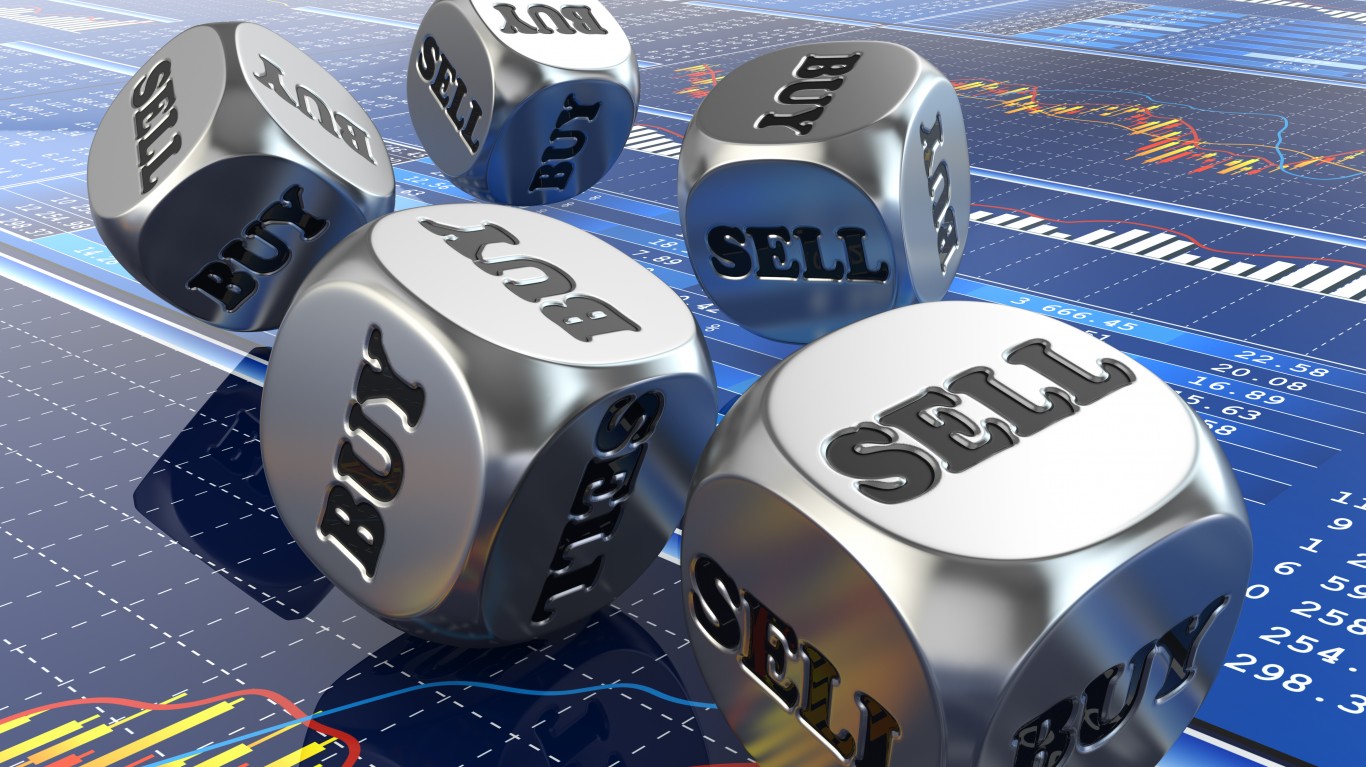
Investors love dividend stocks because they provide dependable income and give investors a great opportunity for solid total return. Total return includes interest, capital gains, dividends, and distributions realized over time. In other words, the actual return on an investment or a portfolio has dividend income and stock appreciation.
After a banner year for the stock market, many investors are concerned the next year may not be the easy-money AI juggernaut we saw in 2023. We screened our 24/7 Wall St. dividend stock research database and found seven safe companies that pay dependable dividends to shareholders that will all still stand tall next year. All are rated Buy on Wall Street.
AT&T
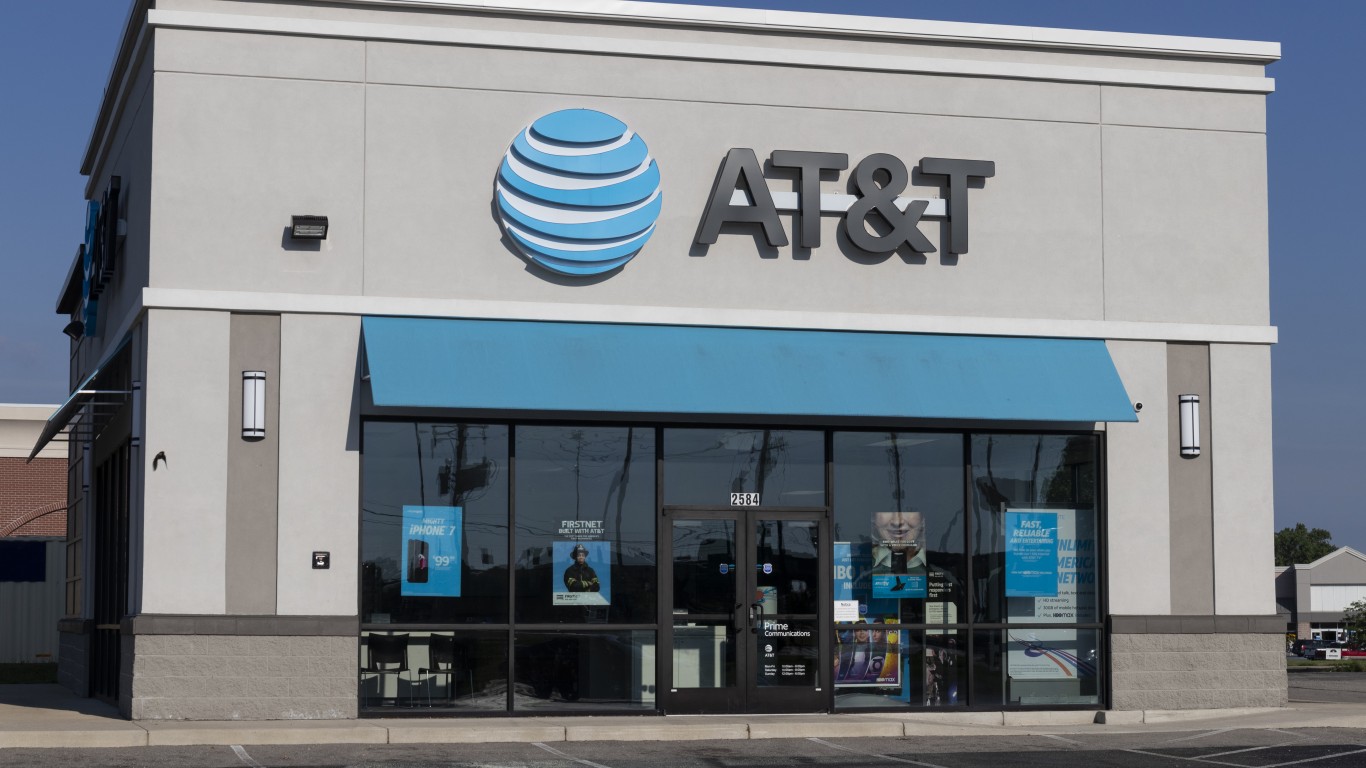
The legacy telecommunications company has been going through a lengthy restructuring and has lowered the dividend, which still checks in at 6.68%. AT&T Inc. (NYSE: T) provides worldwide telecommunications, media, and technology services.
The Communications segment offers wireless voice and data communications services. It sells
- Handsets
- Wireless data cards
- Wireless computing devices
- Carrying cases
- Hands-free machines
AT&T provides
- Data
- Voice
- Security
- cloud solutions
- Outsourcing, managed and professional services
- Customer premises equipment for multinational corporations, small and mid-sized businesses, and governmental and wholesale customers.
In addition, this segment offers broadband fiber and legacy telephony voice communication services to residential customers.
AT&T markets its communications services and products under:
- AT&T
- Cricket
- AT&T PREPAID
- AT&T Fiber brands
The company’s Latin America segment provides wireless services in Mexico and video services in Latin America. This segment markets its services and products under the AT&T and Unefon brands.
Comcast
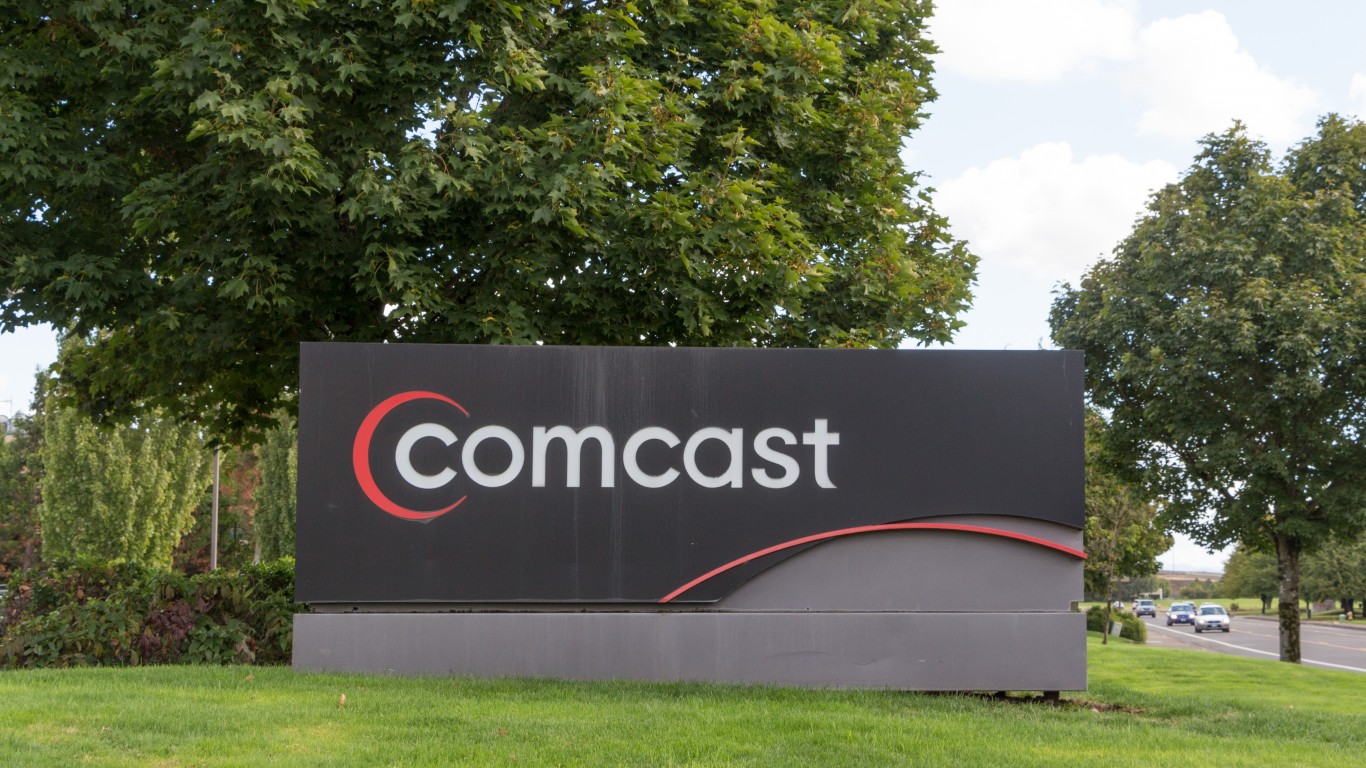
This top media and entertainment company remains a Wall Street favorite and pays a dependable 2.72% dividend. Comcast Corporation (NASDAQ: CMCSA) is the largest US provider of cable services, with over 22 million primary and nearly 27 million broadband subscribers.
Through its acquisition of Sky, Comcast now has direct customer relationships with 53 million subscribers.
Comcast has a foothold in the European market (UK, Germany, and Italy) and its US operations.
Comcast also owns
- NBCU, which includes NBC TV Networks
- Telemundo
- MSNBC
- USA
- SyFy,
- Bravo
- E!
- CNBC
- Universal Films
- Universal Theme Parks
Comcast has invested in technology to build an advanced network that delivers the fastest broadband speeds and brings customers personalized video, communications, and home management offerings.
Dominion Energy

Many Wall Street firms are still very positive on utilities, and this company pays a strong 5.60% dividend. Dominion Energy Inc. (NYSE: D)
Dominion operates through four segments:
- Dominion Energy Virginia
- Gas Distribution
- Dominion Energy South Carolina
- Contracted Assets
The Dominion Energy Virginia segment generates, transmits, and distributes regulated electricity to residential, commercial, industrial, and governmental customers in Virginia and North Carolina.
The Gas Distribution segment engages in regulated natural gas gathering, transportation, distribution, and sales activities and distributes nonregulated renewable natural gas. This segment serves residential, commercial, and industrial customers.
The Dominion Energy South Carolina segment generates, transmits, and distributes electricity and natural gas to residential, commercial, and industrial customers in South Carolina. The Contracted Assets segment is involved in energy marketing and price risk activities.
The company’s portfolio of assets included approximately
- 30.2 gigawatts of electric generating capacity
- 10,500 miles of electric transmission lines
- 85,600 miles of electric distribution lines
- 94,200 miles of gas distribution lines
Dominion serves approximately 7 million customers. The company sells electricity at wholesale prices to rural electric cooperatives and municipalities and into wholesale electricity markets.
Kraft Heinz
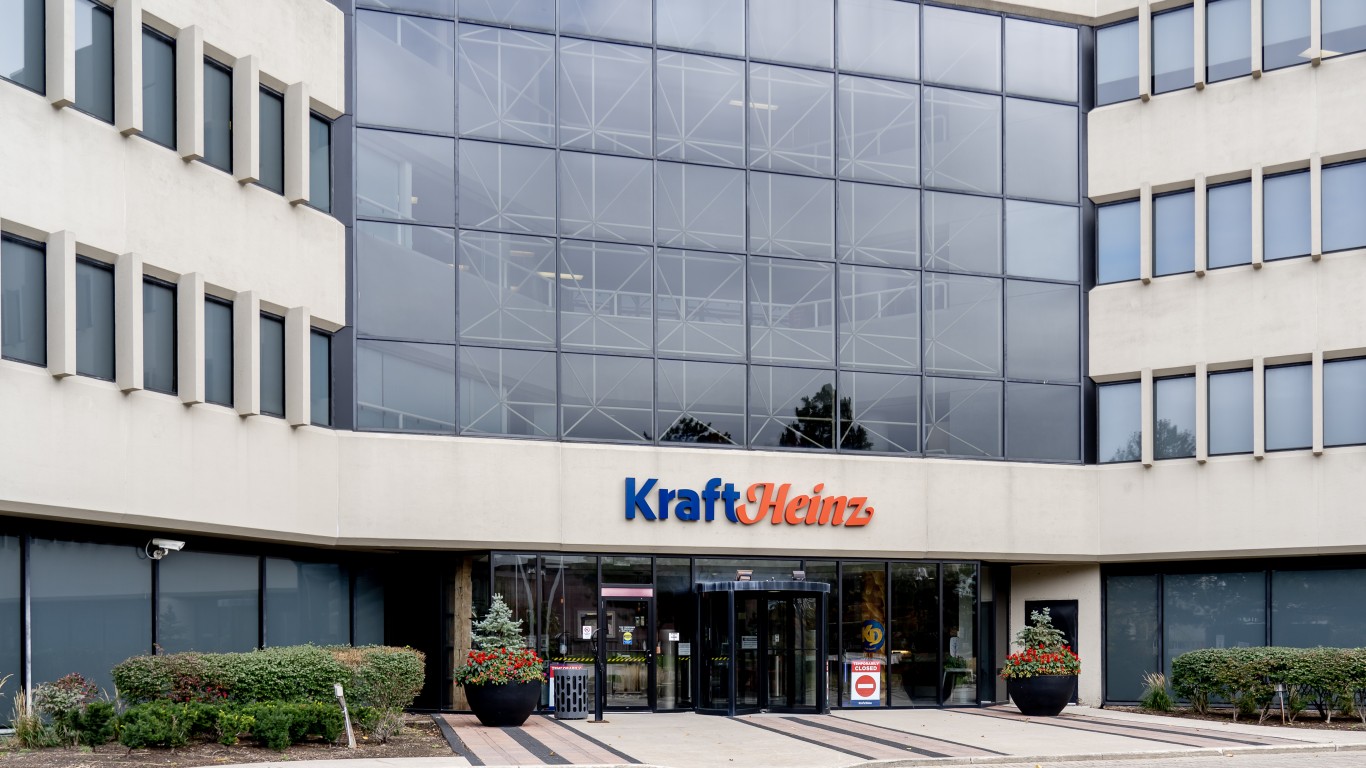
Even in bad times, everybody has to eat, and this company always stands to benefit while paying a tremendous 4.35% dividend. The Kraft Heinz Company (NYSE: KHC) was formed almost six years ago via the merger of H.J. Heinz Company and Kraft Foods Group.
The company is a leading global food company with $25 billion of estimated annual revenues generated by well-known brands such as Kraft, Heinz, Oscar Meyer, and Maxwell House.
The company is the third largest food and beverage manufacturer in North America and derives 76% of its revenues from that market and 24% from International.
The Company’s additional brands include:
- ABC
- Capri Sun
- Classico
- Jell-O
- Kool-Aid
- Lunchables
- Ore-Ida
- Oscar Mayer
- Philadelphia
- Planters
- Plasmon
- Quero
- Weight Watchers
- Smart Ones
- Velveeta
Kroger
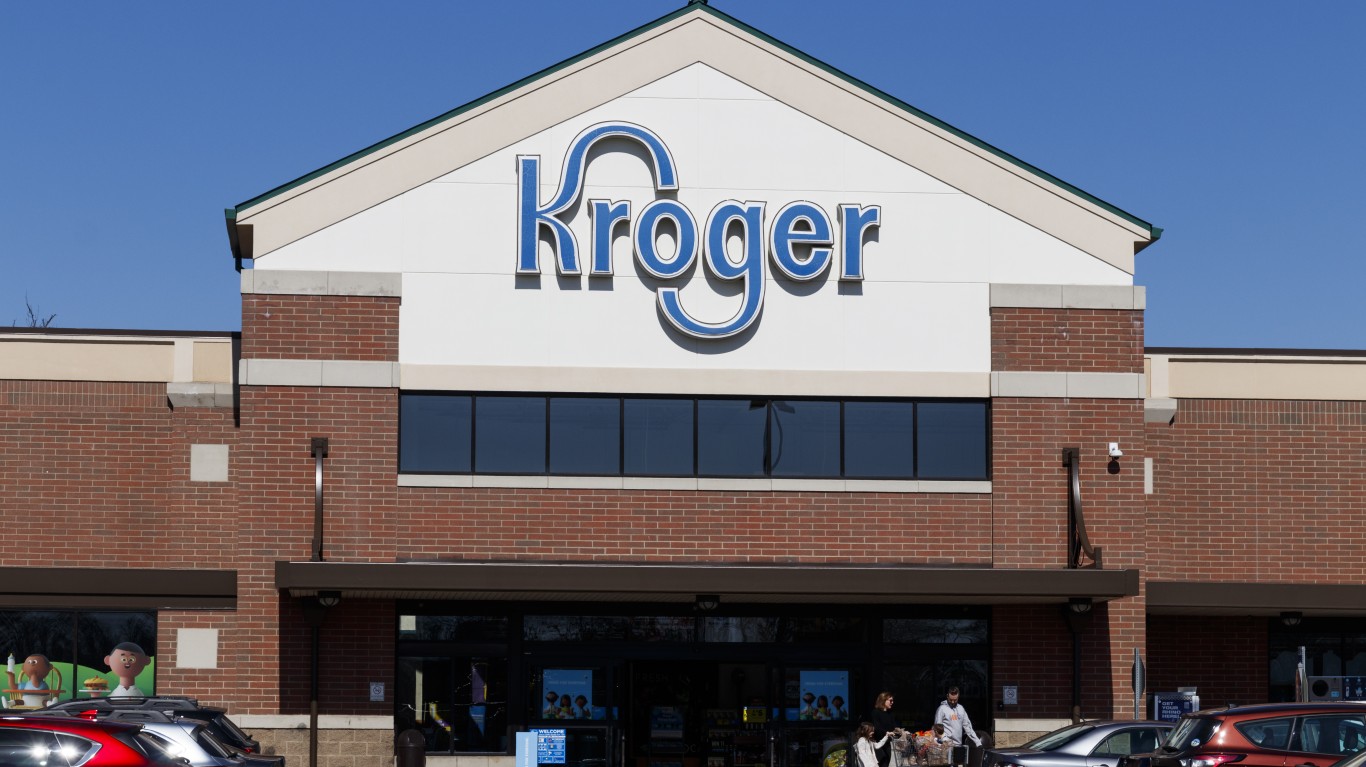
This grocery chain giant is always a solid idea that pays a 2.57% dividend. The Kroger Company (NYSE: KR) operates as a retailer in the United States.
Kroger operates:
- Combination food and drug stores
- Multi-department stores
- marketplace stores
- price-impact warehouses
Its combination of food and drug stores offer
- Natural food and organic sections
- Pharmacies
- General Merchandise
- Pet centers
- Fresh seafood
- Organic produce
- Multi-department stores that provide apparel, home fashion and furnishings, outdoor living, electronics, automotive products, and toys
The company’s marketplace stores offer
- Full-service grocery
- Pharmacy
- Health and beauty care
- Perishable goods
- General merchandise, including apparel, home goods, and toys; and price impact warehouse stores provide grocery, health and beauty care items, meat, dairy, baked goods, and fresh produce items.
Kroger also manufactures and processes food products in its supermarkets and online; it sells fuel through 1,613 fuel centers. As of January 29, 2022, the company operated 2,726 supermarkets under various banner names in 35 states and the District of Columbia.
Kroger is in the process of buying Albertsons and will sell more than 400 stores and other assets for about $1.9 billion to clear a path for a merger with antitrust regulators reviewing a deal that would merge two of the nation’s largest grocery chains.
McDonald’s
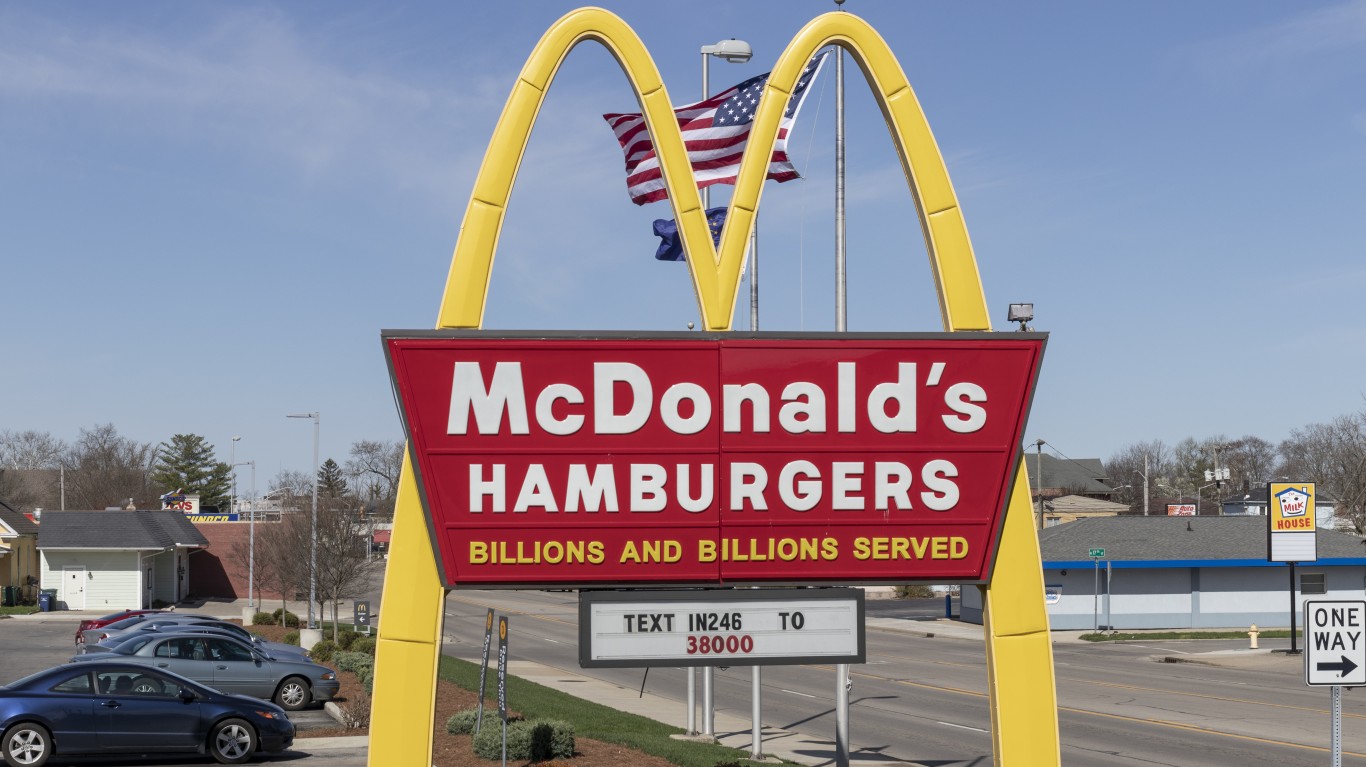
The legacy fast-food heavyweight is a solid pick when the economy goes south or north, is among the safest large-cap restaurant ideas, and pays a 2.31% dividend. McDonald’s Corporation (NYSE: MCD) operates and franchises McDonald’s restaurants in the United States and internationally.
Ninety-five percent of McDonald’s approximately 13,500 U.S. restaurants are owned and used by independent business owners.
The company’s restaurants offer
- Hamburgers and cheeseburgers
- Chicken sandwiches and nuggets
- Fries
- Salads
- Shakes
- Frozen desserts
- Sundaes
- Soft serve cones
- Bakery items
- Soft drinks
- Coffee
- Muffins
- Sausages
- Biscuit and bagel sandwiches
- Oatmeal
- Hash browns
- Breakfast burritos
- Hotcakes.
Procter & Gamble
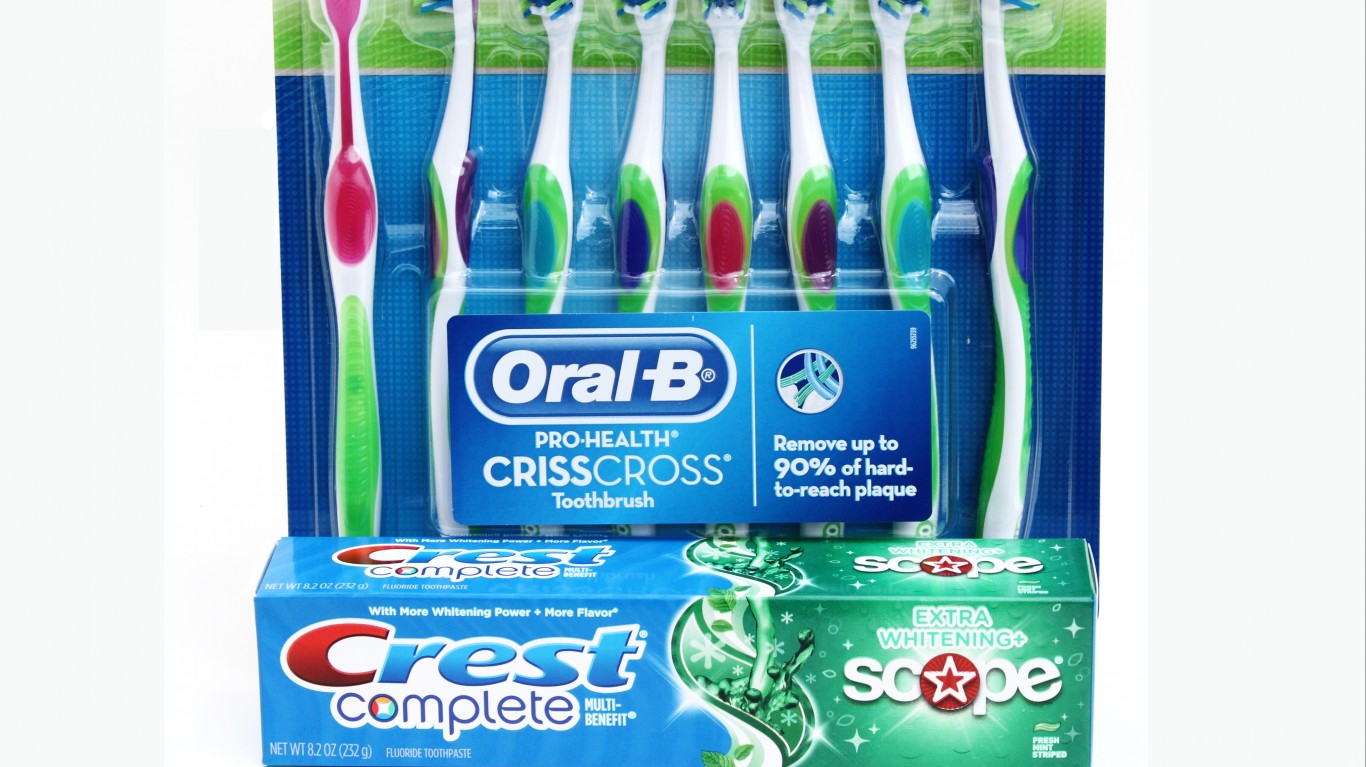
The company offers a substantial 2.58% dividend and consumer staples that are always in demand. The Procter & Gamble Company (NYSE: PG) is one of the world’s largest consumer products companies.
Proctor & Gamble operates under five segments:
- Beauty
- Grooming
- Health Care
- Fabric and Home Care
- Baby and Family Care
The company’s brands include:
- Pampers
- Tide
- Bounty
- Charmin
- Gillette
- Oral B
- Olay
- Pantene
- Head & Shoulders
- Ariel
- Gain
- Always
- Tampax
- Downy
- Dawn
P&G sells its products through mass merchandisers, e-commerce, grocery stores, membership club stores, drug stores, department stores, distributors, wholesalers, baby stores, specialty beauty stores, high-frequency stores, and pharmacies.
The company has been innovative in its product development process and uses that to help ensure future growth and cash flow. This should provide investors with years of steady growth and dividends.
100 Million Americans Are Missing This Crucial Retirement Tool
The thought of burdening your family with a financial disaster is most Americans’ nightmare. However, recent studies show that over 100 million Americans still don’t have proper life insurance in the event they pass away.
Life insurance can bring peace of mind – ensuring your loved ones are safeguarded against unforeseen expenses and debts. With premiums often lower than expected and a variety of plans tailored to different life stages and health conditions, securing a policy is more accessible than ever.
A quick, no-obligation quote can provide valuable insight into what’s available and what might best suit your family’s needs. Life insurance is a simple step you can take today to help secure peace of mind for your loved ones tomorrow.
Click here to learn how to get a quote in just a few minutes.
Thank you for reading! Have some feedback for us?
Contact the 24/7 Wall St. editorial team.





